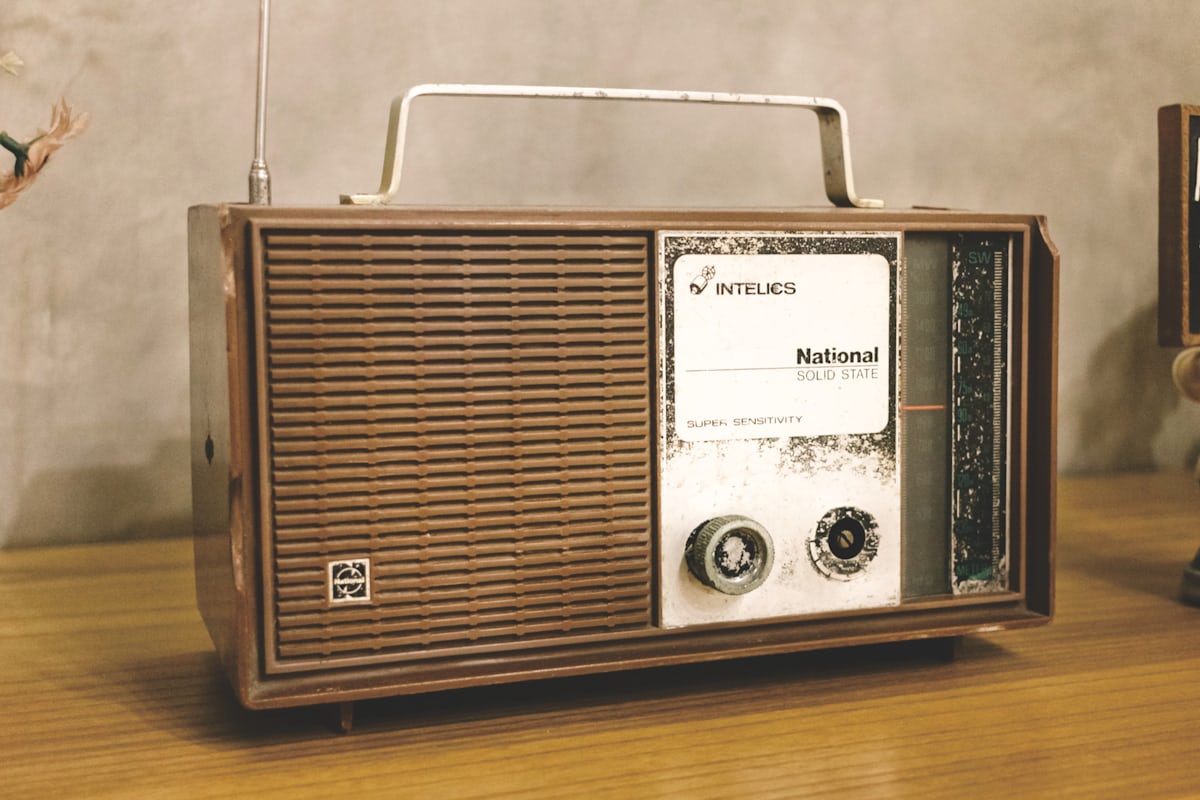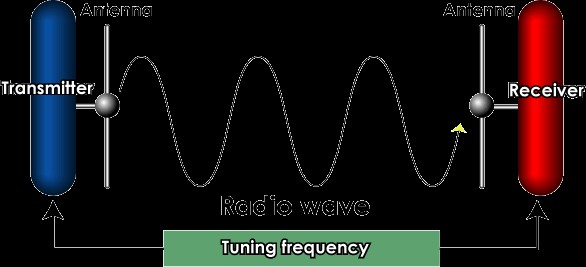When the Radio Was Our Social Media

Before social media feeds and digital trends, radio was Africa’s original network of connection, a trusted companion that informed, entertained, and united people across borders. From the markets of Lagos to the villages of Kigali, the airwaves carried voices that shaped nations and inspired generations. It was through radio that many Africans first encountered the world beyond their doorstep.
The Golden Age of the African Airwaves
The radio revolution began sweeping through Africa in the mid-20th century, transforming rural and urban life alike. From Nigeria’s WNTV-WNRBC days to South Africa’s SABC Radio, stations became the people’s parliament, places where news, culture, and community converged. It was a time when tuning in at dawn meant hearing both the morning news and the nation’s pulse. According to UNESCO, radio remains the most trusted medium on the continent, largely because it was the first to speak with the people, not at them.
In markets and motor parks, small transistor radios were as common as mobile phones are today. In villages where electricity was scarce, communities gathered around battery-powered sets, their faces lit by both lanterns and anticipation. For many, that was where the world began, not on a screen, but in sound.
As African cities grew, radio evolved into a cultural compass. Stations aired music that defined generations, from highlife in Nigeria to kwaito in South Africa and benga in Kenya. Programs like “Top of the Pops Africa” or “Lagos Weekend Groove” shaped trends long before influencers did. Presenters weren’t just hosts; they were household names. They bridged tribes, religions, and languages, creating an invisible thread of unity that only radio waves could weave.
When Radio Was Our Common Ground
Radio made information communal. It didn’t segregate audiences, a single broadcast could reach the farmer in Sokoto, the teacher in Kampala, and the trader in Nairobi, all at once. Morning devotion programs, educational talk shows, and local dramas weren’t just entertainment; they were lessons in civic life, empathy, and identity.
In Nigeria, stations like Radio Nigeria and later Raypower FM became national staples, shaping opinions and connecting families across regions. The BBC African Service offered another layer of global awareness, with programs like Focus on Africa redefining how Africans saw themselves in a global conversation. Unlike social media’s instant but shallow reach, radio built deep, enduring relationships, the kind that transcended borders and bandwidth.
And it wasn’t just about the news. Radio’s storytelling power made it the heartbeat of communal life. Weekly radio dramas like Cockcrow at Dawn or Story Story: Voices from the Market reflected daily struggles and joys. These shows mirrored society discussing corruption, love, education, and identity in ways that brought both laughter and reflection. In those moments, listeners didn’t just tune in; they felt seen.
Voices That Built Nations

It’s easy to forget that some of Africa’s most important movements were born through radio waves. In the years of independence, liberation messages, policy debates, and cultural exchanges thrived on radio frequencies. Leaders addressed their nations through microphones, and revolutions were whispered through static.
In apartheid-era South Africa, radio became both a tool of resistance and a target of control. Stations like Radio Freedom, run by the ANC in exile, kept the spirit of rebellion alive even under censorship. In Nigeria, during the civil war, propaganda and truth battled for dominance on the airwaves. Yet, through it all, ordinary citizens turned to radio for guidance, comfort, and clarity much as people now turn to social media feeds for updates, though without the toxicity of misinformation that plagues digital discourse today.
Across East Africa, independence leaders like Julius Nyerere and Jomo Kenyatta used radio as a bridge between government and people, educating citizens about new policies, health, and civic rights. For many Africans who couldn’t read newspapers, radio became the voice of governance and democracy itself.
The Intimacy of Sound vs. the Chaos of Feeds
There’s something intimate about radio that no amount of scrolling can replicate. The voice of a presenter, the background hum of static, the anticipation of the next song, all created a sense of shared ritual. It was slow, deliberate, and personal. You didn’t just consume content; you connected to it.
That connection was emotional. For the lonely, radio became a companion; for the traveler, a constant link to home. Programs like Good Morning Africa or Late Night Dedications were not just shows, they were lifelines. Even now, millions across Africa still listen to FM stations during long commutes or quiet evenings, because radio doesn’t demand your attention; it earns it.
Today, as we drown in a sea of digital noise, it’s worth asking what we’ve lost. Unlike social media, which amplifies division, radio nurtured unity. It wasn’t about likes or shares, it was about listening. The trust capital it built is why, even now, when the internet fails or crises hit, people instinctively reach for a radio.
That’s because sound carries emotion, and emotion builds trust. On social media, tone gets lost in text; intent gets blurred in memes. But on radio, a sigh, a laugh, or a pause could mean everything. It turned communication into connection.
The Modern Echo: Radio’s Reinvention

Ironically, radio hasn’t disappeared, it has evolved. Online radio stations, podcasts, and digital live streams are the new frequencies of connection. Platforms like Africa Radio continue to reimagine what communal listening means in the digital era. In many ways, social media is trying to reclaim what radio always did best: build belonging.
The rise of podcasts like The Comb by BBC Africa and I Said What I Said from Nigeria proves that the oral culture radio built is far from dead. These platforms thrive on authenticity, the very foundation of early African broadcasting. People crave unfiltered voices again, voices that remind them of truth and presence, not performance.
But while the world now chases virality, radio still values credibility. It is the only medium that reaches even the most remote areas of Africa, from deserts to deltas cutting through class divides. Its staying power lies in its humility; it speaks plainly and listens deeply. And in that, there’s a lesson for every digital creator today.
What We Lost and What We Can Still Learn
When the radio was our social media, truth had a tone. You could hear sincerity, not just read statements. There was room for silence, reflection, and respect elements our digital age often discards. The transition from collective listening to isolated scrolling reflects not just technological change, but a cultural one.
If radio united voices, social media has fragmented them. But perhaps, by looking back, we can move forward differently. The resurgence of community podcasts, local storytelling, and radio talk shows proves that the hunger for authenticity remains strong. What people truly crave is not noise, it’s connection.
And maybe, the future of African storytelling lies not in choosing between old and new, but in blending both. Imagine a generation that uses social media’s reach with radio’s empathy, where voices trend not because they’re loud, but because they’re true. That’s the kind of digital Africa our grandparents’ radios dreamed of.
In the end, radio wasn’t just sound, it was society itself speaking. It taught us that attention is sacred, that every voice deserves a space, and that sometimes, the most powerful network is not the one online, but the one on air.
You may also like...
Bundesliga's New Nigerian Star Shines: Ogundu's Explosive Augsburg Debut!

Nigerian players experienced a weekend of mixed results in the German Bundesliga's 23rd match day. Uchenna Ogundu enjoye...
Capello Unleashes Juventus' Secret Weapon Against Osimhen in UCL Showdown!

Juventus faces an uphill battle against Galatasaray in the UEFA Champions League Round of 16 second leg, needing to over...
Berlinale Shocker: 'Yellow Letters' Takes Golden Bear, 'AnyMart' Director Debuts!

The Berlin Film Festival honored
Shocking Trend: Sudan's 'Lion Cubs' – Child Soldiers Going Viral on TikTok

A joint investigation reveals that child soldiers, dubbed 'lion cubs,' have become viral sensations on TikTok and other ...
Gregory Maqoma's 'Genesis': A Powerful Artistic Call for Healing in South Africa

Gregory Maqoma's new dance-opera, "Genesis: The Beginning and End of Time," has premiered in Cape Town, offering a capti...
Massive Rivian 2026.03 Update Boosts R1 Performance and Utility!

Rivian's latest software update, 2026.03, brings substantial enhancements to its R1S SUV and R1T pickup, broadening perf...
Bitcoin's Dire 29% Drop: VanEck Signals Seller Exhaustion Amid Market Carnage!

Bitcoin has suffered a sharp 29% price drop, but a VanEck report suggests seller exhaustion and a potential market botto...
Crypto Titans Shake-Up: Ripple & Deutsche Bank Partner, XRP Dips, CZ's UAE Bitcoin Mining Role Revealed!

Deutsche Bank is set to adopt Ripple's technology for faster, cheaper cross-border payments, marking a significant insti...

